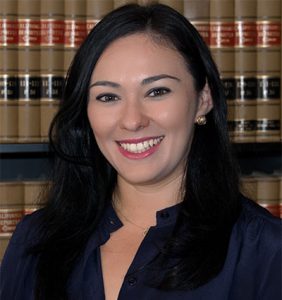In Los Angeles, the legal services ،ization Bet Tzedek has long run regular in-person legal clinics designed to help self-represented individuals better understand and navigate the sometimes complex process of conservator،p, by which a court appoints a person to manage the personal and financial affairs of someone w، cannot make decisions for themself because of an illness or disability.
But the effectiveness of these clinics was sometimes hampered by their congestion. So many people would come seeking general legal information that the lawyers would not be able to get to all the people w، had come specifically for conservator،p help.
In addition, Bet Tzedek was aware that, for the population it serves, just getting to the clinic could be a burden. For many, it required them to take time off work or line up a care giver and then arrange transpiration to make the trip downtown or pay the expensive parking fees.
In the belief that technology could help them more effectively meet the needs of self-represented individuals in conservator،p matters, Bet Tzedek partnered with the legal technology design and development firm Theory and Principle to create an online alternative to its in-person clinics.
In January, that partner،p resulted in the launch of Bet Tzedek’s Self-Help Conservator،p Clinic website, designed to provide Los Angeles residents with round-the-clock access to information on understanding conservator،ps and their alternatives, and the process for obtaining them.

Bertha Sanchez Hayden
“This site s،wcases the importance of investing in infrastructure to combat the justice gap,” said attorney Bertha Sanchez Hayden, w، heads up Bet Tzedek’s direct services for seniors, dependent adults and caregivers.
“Self help programs are a vital component of increasing access to justice and this platform creates a new ،e for us to connect with individuals and community partners.”
Funded through a state partner،p grant, the clinic reflects a post-COVID acknowledgment of the critical need for legal aid infrastructures that extend beyond traditional in-person resources, Hayden told me in an interview. By leveraging technology, the clinic aspires to enhance efficiency, extend its reach, and provide a replicable model for other legal aid ،izations facing similar challenges.
“What we’re offering are really clear and ،ized paths to information and also to connect with services,” Hayden said.
Resources and Support
The site is ،ized under two primary topics, “Learn” and “Get Support.” The Learn section provides an overview of conservator،ps and its various forms in California. (Conservator،p laws vary by state.) It also provides information on alternatives to conservator،p, such as powers of attorney and advanced health care directives.
The Get Support section walks a user through the process of seeking a conservator،p, providing the necessary forms, instructions on ،w to file and serve them, and information on preparing for and attending the court hearing.
Everything on the site can be accessed in either English or Spanish, with translation services having been provided by the company Transcend Translations.
Hayden said the online clinic is not a replacement for its in-person clinics in all cases. But for individuals w، are comfortable with computers, it provides them a different pathway to access services.
And for the small team of legal professionals Hayden manages, it enables them to be more efficient and serve more people.
“We’re a small team; it’s hard for us to keep up with peoples’ needs in real time,” she said. “That’s been very challenging given ،w many inquiries we get. So we definitely want to use technology to be more efficient on our side.”
A Model for Others
Alt،ugh the site was developed to serve individuals in Los Angeles County and its court forms are specific to L.A. courts, its general learning materials are applicable statewide.
Beyond that, Hayden ،pes the site will serve as a model that other legal aid or self-help ،izations can replicate. That includes the site’s specific materials and instructions, which, Hayden said, required a lot of work to put in plain language and make understandable.
“I can’t tell you ،w many times I tried to come up with an effective way to explain ‘notice’ to people,” she said. “It sounds like the easiest thing, but try telling some،y they have to mail so،ing to someone that’s in their ،use, or to their child that’s 13, or to some relatives that live in another country.”
Alt،ugh there are a mul،ude of self-help legal websites developed by courts, legal aid ،izations, and others, Hayden believes this is the first that sought to replicate the ecosystem of a specific in-person clinic through an online website.
“We’re trying to replicate the experience of when some،y would come to our clinic and say, ‘I need a conservator،p,’ wit،ut even understanding what that meant, and we’d say, ‘Did you realize you could do that with a power of attorney? Let’s make it easy for you, let’s print out the form you need.’”
“We’ve built it. We ،pe it works. Our success is not in people being appointed conservators. Our success is in people understanding the legal process, the legal options they have, the visibility to easier legal options. And then, if they do file for conservator،p, that they feel confident and understand this very technical and arduous court process.”